Interview: Making Dark Fantasy Accessible - Carol Berg
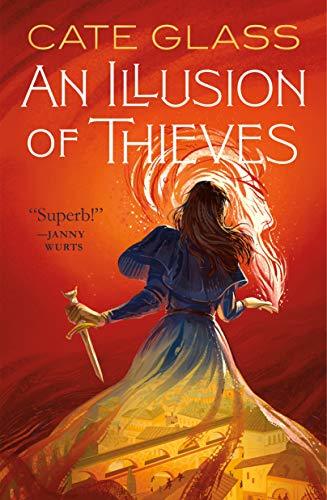
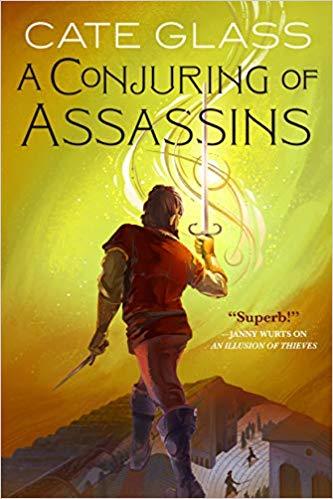 Let us welcome Carol Berg (and Cate Glass)Carol Berg majored in mathematics at Rice University, in part so she wouldn't have to write papers. But while earning her mathematics degree, she took every English course that listed novels on the syllabus, just so she would have time to keep reading. Somewhere in the midst of teaching math for a couple of years, raising three sons, earning a second degree in computer science at the University of Colorado, and a software engineering career, a friend teased her into exchanging letters written "in character." Once Carol started writing fiction, she couldn't stop. Carol's fifteen epic fantasy novels have earned national and international acclaim, including the Geffen Award, the Prism Award, multiple Colorado Book Awards, and the Mythopoeic Fantasy Award for Adult Literature. She has been twice voted the Rocky Mountain Fiction Writers Writer of the Year. Carol's newest work, written as her alter ego Cate Glass, is a fantasy adventure series called
Chimera
about a rag-tag quartet of sorcerers who take on missions of deception and intrigue in a world where magic earns the death penalty. The first book, An Illusion of Thieves, was released in May 2019 by Tor Books (A Conjuring of Assassins is due out Feb 2020). Carol lives in Colorado at the foot of the Rocky Mountains with her Exceptional Spouse. She routinely attends conventions and was recently a special guest at the 2019 GenCon Writer’s Symposium. Carol Berg makes dark fantasy fun and accessible, a perfect candidate for our interviews on “Art & Beauty in Weird Fantasy” (see previous interviews listed below). Most authors who produce horror/fantasy are (a) serious about their craft, and (b) driven by strange muses. Let’s tap the mind(s) of Carol Berg and Cate Glass.
Let us welcome Carol Berg (and Cate Glass)Carol Berg majored in mathematics at Rice University, in part so she wouldn't have to write papers. But while earning her mathematics degree, she took every English course that listed novels on the syllabus, just so she would have time to keep reading. Somewhere in the midst of teaching math for a couple of years, raising three sons, earning a second degree in computer science at the University of Colorado, and a software engineering career, a friend teased her into exchanging letters written "in character." Once Carol started writing fiction, she couldn't stop. Carol's fifteen epic fantasy novels have earned national and international acclaim, including the Geffen Award, the Prism Award, multiple Colorado Book Awards, and the Mythopoeic Fantasy Award for Adult Literature. She has been twice voted the Rocky Mountain Fiction Writers Writer of the Year. Carol's newest work, written as her alter ego Cate Glass, is a fantasy adventure series called
Chimera
about a rag-tag quartet of sorcerers who take on missions of deception and intrigue in a world where magic earns the death penalty. The first book, An Illusion of Thieves, was released in May 2019 by Tor Books (A Conjuring of Assassins is due out Feb 2020). Carol lives in Colorado at the foot of the Rocky Mountains with her Exceptional Spouse. She routinely attends conventions and was recently a special guest at the 2019 GenCon Writer’s Symposium. Carol Berg makes dark fantasy fun and accessible, a perfect candidate for our interviews on “Art & Beauty in Weird Fantasy” (see previous interviews listed below). Most authors who produce horror/fantasy are (a) serious about their craft, and (b) driven by strange muses. Let’s tap the mind(s) of Carol Berg and Cate Glass.Your epic fantasy is infused with grim reality — it is not simple good-vs-evil fantasy, nor is it over-the-top grimdark. How would you describe your style?Yes, I would call most of my work dark fantasy — reflecting that grim and gritty reality you mentioned — and epic, because the stories deal with world shaking events. But my stories are told through a very personal lens. To me, when I am looking at these great events through the eyes and mind of a real, complex human (or almost human) being – someone I want to spend several years with -- I can always find threads of hope and light through the story and especially at the end of it all. I begin with heroes or heroines who have plenty of reason for angst—enslaved, exiled, a failure, entire extended family massacred, father a convicted murderer, or just released from a horrific, seventeen-year imprisonment. But for this individual to feel real to me, there has to be more than angst. Dark secrets, a dark side, or grudges are fine, but I want to interweave that with lots of other human characteristics: wit or humor, a soaring intellect or an inability to read, curiosity or superstitions, maybe phobias or maybe a truly romantic view of the world. Weird family histories are fun to incorporate. I enjoy protagonists who have interior conflicts: oath-sworn warriors driven by compassion, intellectuals with a penchant for violence, necromancers whose magic is based on an understanding of the natural world. A sorcerer might embrace magic with all its possibilities and find that the restrictions on his life are worth the wonders he can work. But other sorcerers might despise and detest the power that lives in them, and feel that those restrictions are “slavery with golden chains.” Some would-be sorcerers just can’t find their way to the magic they just know lives inside them. Sometimes the most “magical” character who fires a plot is the one who has no extraordinary power at all, but rather the personal characteristics to marshal the talents of those around them who do. I like to confront interesting, creative people like artists, singers, or librarians with events that stretch their abilities as well as push them into a life outside of their imagining. And every character must have the capacity to change. It’s up to me to figure out how to make them do that. Through events, through difficulties, through other real people who show up in the story. Around these complex characters, I aim for complexity in the world — many intersecting threads that have created the status quo — often with conflicting stakes that are not necessarily apparent to begin with, but ratchet with the action. Those ratcheting stakes need to be significant, not just for the world, but to the characters themselves. And in answer to the common queries: neither characters nor world are fully defined before I start writing, though the characters always are the seed of the story. Oftentimes I know just enough of the world to start writing. Both characters and story evolve as I go.
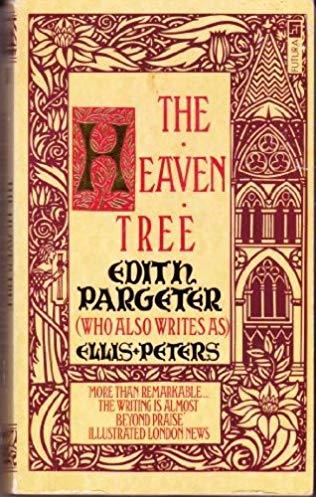
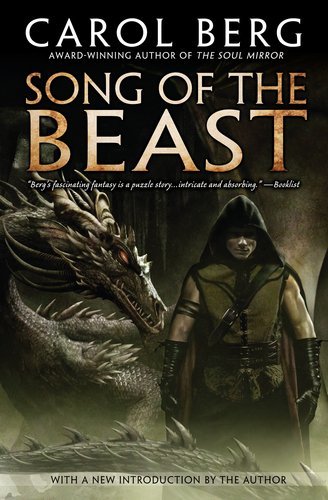 Any professional tips for maintaining a good balance of tension? How can you brutalize protagonists while keeping appeal to wide audiences?I can definitely be tough on my characters — mostly my protagonists. I put strong people in impossible situations, which means they have to go through some very dark times in order to see and understand and accept what has to be done to fix the problems I’ve set them. Sometimes that means changing themselves in ways they detest. I like to think that through these very gritty events, they are able to find a path of grace that leads to a hopeful — if not perfect — resolution. Writing those difficult situations is a perpetual teeter-totter. Some people think I chicken out. Some readers think I go too far. Some tell me that they had to take a break when Lucian went through his prison ordeal in Dust and Light or when Seyonne got trapped in the daemon dungeons of Kir’Vagonoth in Revelation. But I believe that epic events must impact people in lasting ways, and that it takes a great deal to make strong and stubborn people change. These are the fires that temper the blade… or ruin it. A few personal rules of thumb in what I put on the page:
Any professional tips for maintaining a good balance of tension? How can you brutalize protagonists while keeping appeal to wide audiences?I can definitely be tough on my characters — mostly my protagonists. I put strong people in impossible situations, which means they have to go through some very dark times in order to see and understand and accept what has to be done to fix the problems I’ve set them. Sometimes that means changing themselves in ways they detest. I like to think that through these very gritty events, they are able to find a path of grace that leads to a hopeful — if not perfect — resolution. Writing those difficult situations is a perpetual teeter-totter. Some people think I chicken out. Some readers think I go too far. Some tell me that they had to take a break when Lucian went through his prison ordeal in Dust and Light or when Seyonne got trapped in the daemon dungeons of Kir’Vagonoth in Revelation. But I believe that epic events must impact people in lasting ways, and that it takes a great deal to make strong and stubborn people change. These are the fires that temper the blade… or ruin it. A few personal rules of thumb in what I put on the page: I try not to minimize terrible truths of human history like slavery, war, or fanaticism. That being said, there are certain lines I will not cross and places I will not go in the events of my stories, especially with regard to children and to sexual violence.When violence or brutality is necessary to the story, I try to show results — both physical and emotional — more than graphic details. I also try to portray the cost of violence, both to the subject and the perpetrator (if this perpetrator is a significant actor in the story).Sociopaths or psychopaths or people driven solely by revenge don’t interest me all that much. Over the years I’ve found that villainous people are much more interesting if they have complex motives (sorry Sauron), some of which I – or my protagonist – might actually support. With some I like to imagine that with some small difference in experience or human intervention, that person might have turned out to be a good person. One of the best villains I have ever read comes from a story called The Heaven Tree by Edith Pargeter (aka Ellis Peters of the Brother Cadfael Chronicles ). The Heaven Tree is a trilogy of historical novels set in twelfth-century Wales. The noble named Isambard is one of the most black-hearted villains you will ever find — a very cruel and personal villain — and yet, by the end of those books you might find yourself weeping for him. How did the writer DO that? I am still striving to be that kind of writer!
As an engineer by training, you must be concerned about mass, heat, or energy balances. Is magic a conserved quantity for you (or is it a boundless source)?First off, just to be clear, I was a software engineer, much more concerned with logic, languages, and software processes than with thermodynamics or mechanical processes! But my engineering background did indeed make me want to deal with technical issues correctly. You will never see any of my characters hauling about bags of gold as if they are bags of wheat a la Treasure of the Sierra Madre (that much gold would have collapsed the horses!) In the same way, in the Books of the Rai-kirah , when I was dealing with shapeshifting, I wanted to get the mass/energy balance right. Thus when a certain cursed person changes from a man to a lion, all the heat is sucked out of the vicinity. When he changes back, he is the one left shivering while the room warms up. As for magic, each of my worlds (the Rai-kirah books, the Navronne books, the D’Arnath books, the Collegia Magica books, Song of the Beast, and the Cate Glass Chimera books) has a different magic system. Sometimes magic derives from the individual’s blood, sometimes from genetic heritage, sometimes from magic infused into the land by actions of semi-divine beings. Sometimes from a combination of those things. In one series, the actual magic resides in objects in the natural world, while the power to use it and shape it comes from the individual sorcerer’s strength of will and clarity of insight. In all cases, however, I do impose limits on a sorcerer’s ability to make use of magic. That might correspond to physical or mental exhaustion that can be restored by eating, drinking, rest, or an infusion of hope or faith. Sometimes a sorcerer’s expenditure of power has to be renewed by particular actions that this person has learned to replenish the gift. So, in essence, yes. And no.
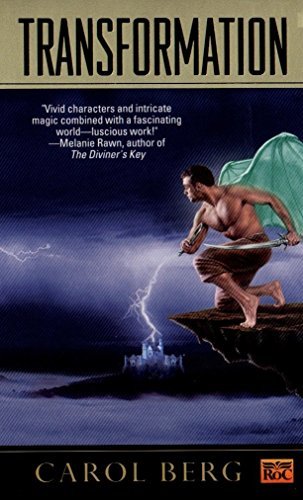
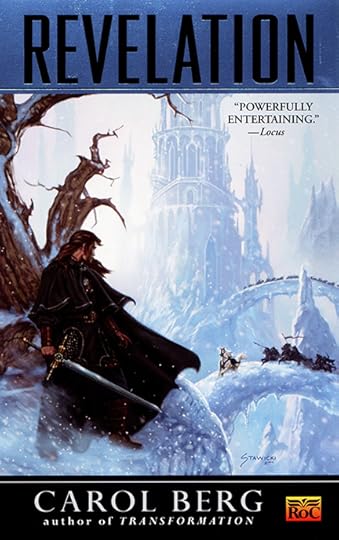
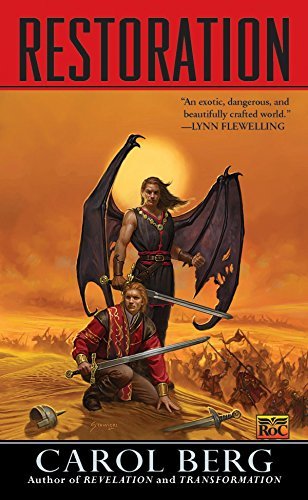 Protagonists empowered with taboo-sorcery seem central across your varied worlds: i.e., Romy (
Illusion of Thieves
in Chimera); Seyonne (
Transformation
in Books of the Rai-kirah); Karon (
Son of Avonar
in The Bridge of D'Arnath); Lucian (
Dust and Light
in Sanctuary Duet). Can you shed light on forbidden magic and your sympathetic muse toward sorcery?I must preface this answer with one of my mantras: Trope is not a dirty word. Literary tropes are stories, themes, or plot devices that have become embedded in our human DNA throughout millennia of storytelling. The Romeo and Juliet story, for example, or “the common man drawn into great events” story. Among plot elements you would find the unknown twin or the evil step-sibling or the alcoholic ex-cop private eye. Certain stories or plot elements become tropes because they engage and satisfy us on an emotional level. What differentiates a trope from a cliché is the treatment — the originality that comes from unique characters, settings, motivations, and plot twists. West Side Story is a retelling of the R&J tragic love story — one of thousands — but its reimagining is wonderful on its own. There are hundreds of fantasy tropes, whole websites devoted to listing them. Taboo sorcery is definitely one, and it’s one that speaks to me, I think because of the challenge of possessing a skill so awesome and marvelous, in a world that forces you to cripple yourself or die. It builds in major conflict and tension that I can use as a superstructure for all sorts of other conflicts. And the circumstances and origins of the prohibition are fodder for many interesting plot twists. In each of the cases you mention above, the prohibition arises from entirely different circumstances and plays an entirely different role in the overall plot.
Protagonists empowered with taboo-sorcery seem central across your varied worlds: i.e., Romy (
Illusion of Thieves
in Chimera); Seyonne (
Transformation
in Books of the Rai-kirah); Karon (
Son of Avonar
in The Bridge of D'Arnath); Lucian (
Dust and Light
in Sanctuary Duet). Can you shed light on forbidden magic and your sympathetic muse toward sorcery?I must preface this answer with one of my mantras: Trope is not a dirty word. Literary tropes are stories, themes, or plot devices that have become embedded in our human DNA throughout millennia of storytelling. The Romeo and Juliet story, for example, or “the common man drawn into great events” story. Among plot elements you would find the unknown twin or the evil step-sibling or the alcoholic ex-cop private eye. Certain stories or plot elements become tropes because they engage and satisfy us on an emotional level. What differentiates a trope from a cliché is the treatment — the originality that comes from unique characters, settings, motivations, and plot twists. West Side Story is a retelling of the R&J tragic love story — one of thousands — but its reimagining is wonderful on its own. There are hundreds of fantasy tropes, whole websites devoted to listing them. Taboo sorcery is definitely one, and it’s one that speaks to me, I think because of the challenge of possessing a skill so awesome and marvelous, in a world that forces you to cripple yourself or die. It builds in major conflict and tension that I can use as a superstructure for all sorts of other conflicts. And the circumstances and origins of the prohibition are fodder for many interesting plot twists. In each of the cases you mention above, the prohibition arises from entirely different circumstances and plays an entirely different role in the overall plot. Isolation is another theme, with your protagonists being torn from their communities either enslaved, outcast, or exiled. Does this reflect your own fears?Thank goodness I’ve never had to face these challenges in my own life as so many have throughout history and still do in present day. But isolation can be a very powerful torment, especially when one’s heart is entirely rooted in strong, positive bonds to that community, as with Lucian de Remini and his family in the Sanctuary books or when one’s whole identity is rooted in a cultural mandate that protects an unknowing world, as happens with one of my protagonists. Even when that isolation is voluntary, as with the runaway rogue, Valen de Cartamandua-Celestine, an extrovert party guy who comes to the realization that he has never truly had a friend. But as I said earlier, I look for circumstances that force my characters to see the world in an entirely different way. Often we can’t do that unless the comfortable buffers of family, culture, or belief are ripped away. It is my task as a fiction writer to learn how this (or any other challenge) might affect the human person I am trying to create, and to share those effects on the page. Another subject I find myself returning to is the nature of memory. Does it live in our physical body or is it something that can be removed or shared or replaced? One reason I love writing fantasy is the opportunity to explore that kind of what ifs. The answers one finds in Ash and Silver (in the Sanctuary Duet) are something very different from those one finds in Guardians of the Keep (in The Bridge of D'Arnath).
Do you practice other arts (drawing, music, etc.)? What other types of art inspire you?Alas, my nattering on the piano fell victim to the writing passion along with gardening, needlepoint, furniture refinishing, and a handful of other sidelines to day job and family. Eventually the day job went away, too. But I’ve always drawn inspiration from music of many kinds. I grew up with classical music, especially wonderfully emotional varieties like Chopin, Rachmaninoff, Tschaikovsky and Dvorak. And though my “regular life” has been filled with everything from the Doors to Dylan to Alison Krauss to Miles Davis, those are not writing related. I can’t listen to symphonic music, jazz, rock, or much of anything with English words, because those demand attention. But sometimes I find a particular set of tracks that puts me right in the imagination groove for a particular series. With the Navronne books, it was medieval chant that put me right into Gillarine Abbey, as well as secular court music from the courts of Malta, the Seattle Medieval Women’s choir, and Project Ars Nova. For the Collegia Magica books it was 17th-century music from France and Loreena McKennitt. Somehow with the Chimera books, it is the soundtrack from Blood Diamond and the evocative moody background music to the video game Braid that I pull up when I need to go deep.
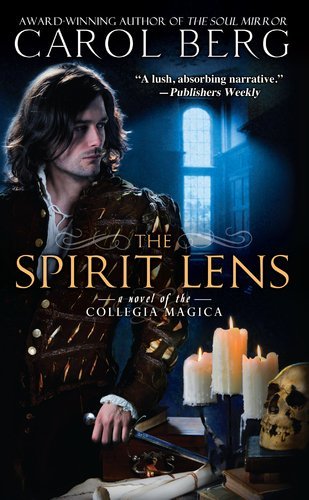
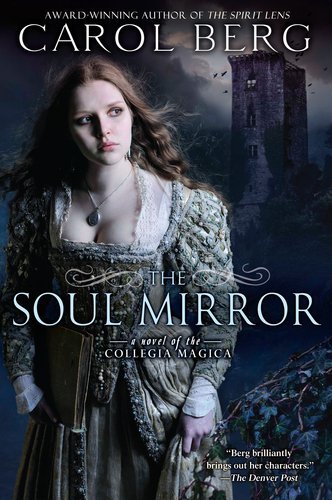
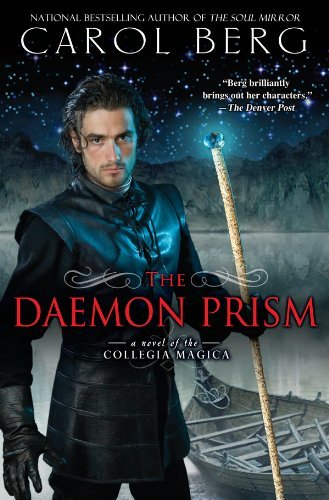 You’ve had several well-known cover artists (Luis Royo, Matt Stawicki, and most recently Google Doodler Alyssa Winans) depict your characters & worlds employing very different styles. Did you get a chance to guide cover art?Sadly (in some cases) and fortunately (in other cases) I have had very little say in my cover art. Publishers are notoriously reluctant to leave marketing considerations in the hands of authors – and covers are totally marketing. Some of my covers have been gorgeous. Even the ones I most regret were well executed. I totally admire anyone who has visual art skills and can come up with an excellent cover design, and the marketing aspect often escapes me entirely. I live in horror of having to tell an artist what I want. I just know what I like when I see it.
You’ve had several well-known cover artists (Luis Royo, Matt Stawicki, and most recently Google Doodler Alyssa Winans) depict your characters & worlds employing very different styles. Did you get a chance to guide cover art?Sadly (in some cases) and fortunately (in other cases) I have had very little say in my cover art. Publishers are notoriously reluctant to leave marketing considerations in the hands of authors – and covers are totally marketing. Some of my covers have been gorgeous. Even the ones I most regret were well executed. I totally admire anyone who has visual art skills and can come up with an excellent cover design, and the marketing aspect often escapes me entirely. I live in horror of having to tell an artist what I want. I just know what I like when I see it. After establishing fifteen books over two decades, your alter ego emerged: Cate Glass. Why the pseudonym now?In short: new publisher, new type of story. The Books of the Chimera are episodic adventures with continuing threads, rather than a single epic story told in multi-volume set. After we signed the contract for the Chimera books, the publisher asked if I would consider a pseudonym. It gave them the opportunity to promote the Chimera as a debut for industry purposes such as expanding my audience, while leaving the identity open (not a secret), so my current readers could find me. Their proposal made sense and I agreed. Hopefully, Carol Berg will be bringing more stories to life along the way as well.

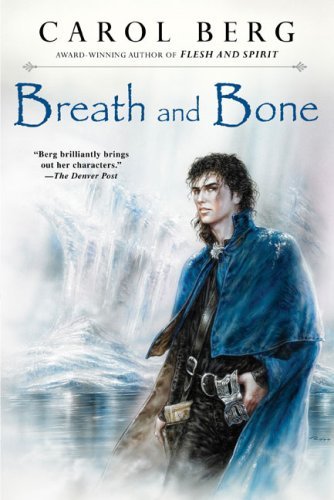

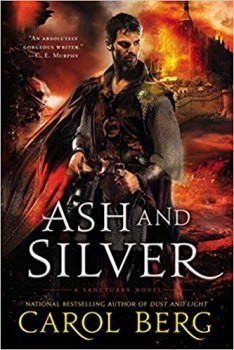 Let’s discuss a character who is an artist too: Lucian de Remeni-Masson (
Dust and Light
and
Ash and Silver
). Can you describe how he sketches souls?Lucian is specifically a portrait artist. At a sitting, Lucian observes his subject—not only physiognomy, but movements, attitudes, speech, posture, and emotions. He begins sketching on paper — line, light, and shadow — while simultaneously building the person’s image in his mind. As he works, he uses these sensory connections with the subject to ignite his magic, which shifts that image in his head into what he calls a true image that will linger in his mind for a very long time. In turn, this true image guides his fingers to refine the sketch into a full portrait. By the time he is finished with the portrait, his magic has imbued that portrait with truth, so that it can be used to identify that person inerrantly. Of course, sometimes people don’t want to see the truth of themselves. Uh oh. When Lucian is contracted to draw portraits of the dead so that they can be identified, the only sensory connections he can make with his subject are those of his eyes and his hand. He has to dig deeper into himself and the magic to create that internal image that enables him to draw truth. And the results are very interesting.
Let’s discuss a character who is an artist too: Lucian de Remeni-Masson (
Dust and Light
and
Ash and Silver
). Can you describe how he sketches souls?Lucian is specifically a portrait artist. At a sitting, Lucian observes his subject—not only physiognomy, but movements, attitudes, speech, posture, and emotions. He begins sketching on paper — line, light, and shadow — while simultaneously building the person’s image in his mind. As he works, he uses these sensory connections with the subject to ignite his magic, which shifts that image in his head into what he calls a true image that will linger in his mind for a very long time. In turn, this true image guides his fingers to refine the sketch into a full portrait. By the time he is finished with the portrait, his magic has imbued that portrait with truth, so that it can be used to identify that person inerrantly. Of course, sometimes people don’t want to see the truth of themselves. Uh oh. When Lucian is contracted to draw portraits of the dead so that they can be identified, the only sensory connections he can make with his subject are those of his eyes and his hand. He has to dig deeper into himself and the magic to create that internal image that enables him to draw truth. And the results are very interesting. Do you find any fiction beautiful? If so, what made it so?Absolutely. In fact, I would call most of my all-time favorite books beautiful. Example? Ellen Kushner’s Thomas the Rhymer. The vivid, believable characters. The language that creates perfectly individual voices for the protagonists, as well as creating the real world version of a fairy tale. The books draws you into the emotional nuances of a man cursed to answer any question with the truth — not a simple prospect at all, because sometimes we tell lies in order to give comfort, or we avoid or obfuscate to protect the questioner. True Thomas doesn’t have that luxury. For something completely different… I thought Christina Henry’s Alice was beautiful fiction. A fractured world from the viewpoint of a woman who wakes up in a mental hospital, and a fantastic, sometimes grotesque city can be beautiful in the way a painting by Mondrian or Hieronymous Bosch can be as beautiful as a Renoir. Again it was the way the author used language and nuance to create the vivid characters of Alice and her Hatter, and an adventure you were never quite certain was real. But a book doesn’t have to be a fairytale retelling in order to be beautiful. Dick Francis’s mysteries are beautiful in the way he could take three sentences to evoke the feeling of Cheltenham Racetrack on the damp, cool afternoon of the biggest horse race of the year. Three more will tell you everything you need to know about his latest detective. And then you are off on a non-stop adventure. It’s all magic.
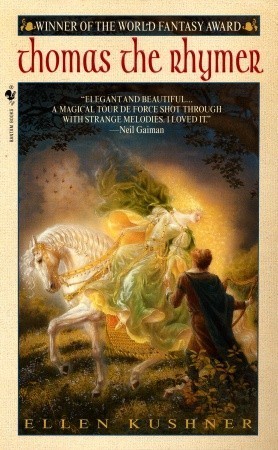
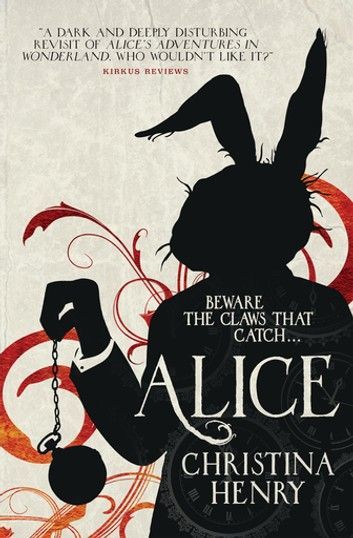 You’ve obviously mastered first-person perspective. Is that your natural voice or a strategic choice?I wrote for a number of years for my own enjoyment before imagining anyone would ever be interested in reading any of it. My first few attempts were in first -person because they grew from a series of letters a friend and I were writing to each other in character. That was fun (and some very awful writing no one will ever see). Once that was finished, I started something new, this time in third-person. It took me a while trying to figure out why the new story just wasn’t working in the way the admittedly awkward first books did. One problem was that I felt like the story was taking place at arm’s length. So I tried switching to first-person – essentially went through and replaced “she” with “I” and so forth. What resulted was ridiculous. The narrative was stiff as a board. It was at that point that I realized that almost every one of my favorite books—whether fantasy, mystery, historical, or spy thriller — was written in the first-person. First-person just came more naturally, especially as my writing matured and I figured out how to go deeper into my characters. Turned out that the kind of stories I wanted to write were all told through this personal lens, and first-person just fits.
You’ve obviously mastered first-person perspective. Is that your natural voice or a strategic choice?I wrote for a number of years for my own enjoyment before imagining anyone would ever be interested in reading any of it. My first few attempts were in first -person because they grew from a series of letters a friend and I were writing to each other in character. That was fun (and some very awful writing no one will ever see). Once that was finished, I started something new, this time in third-person. It took me a while trying to figure out why the new story just wasn’t working in the way the admittedly awkward first books did. One problem was that I felt like the story was taking place at arm’s length. So I tried switching to first-person – essentially went through and replaced “she” with “I” and so forth. What resulted was ridiculous. The narrative was stiff as a board. It was at that point that I realized that almost every one of my favorite books—whether fantasy, mystery, historical, or spy thriller — was written in the first-person. First-person just came more naturally, especially as my writing matured and I figured out how to go deeper into my characters. Turned out that the kind of stories I wanted to write were all told through this personal lens, and first-person just fits. You describe your writing process as being “organic” (not a pantser per se). What does that mean?To me, the word “pantser” implies that you sit down with a blank page with no end in mind except the end of the book. Instead of that, I start with a seed: a character, a setting, and a destination in mind. I need to get the slave back to the prince’s house. I need to get Portier into the king’s service to investigate a murder. I need Anne to see where her sister was found dead. Whatever. Then I start writing. As I write I set the event in motion and think – at that moment – how does this character react to this event? What does that reaction tell me about that character? Who else is there and why? As I write the scene, I decide what else I need to include in this setting to make the scene more sensory. More vivid. And then, how do those details inform the world that includes the setting? Etc. Etc. That isn’t flying by the seat of your pants. That is growing new things from known things.
The sequel to An Illusion of Thieves , A Conjuring of Assassins , is due out Feb 2020. What illusions can we expect?Each of my little cadre of sorcerer/spies has a unique talent. Because sorcery has been mostly exterminated in the Costa Drago, they’ve no idea of the possibilities or varieties of magic in the world. It’s also very dangerous to experiment. But in the short timespan since the events of Illusion, they’ve tried a few things. Rather than channeling their power through the particular shape of their talents, they’ve had some success drawing on the raw power itself to do a few things. Sort of like using white gas to start your campfire or to clean the sap off your boots, rather than simply pumping it through the campstove for a single purpose. This enables the possibility of everyone pouring their “white gas” into the single purpose…. hmmm, does that work? The biggest revelation comes though when they encounter someone who is talented in entirely different ways. Any more would be telling!
Previous Black Gate interviews on “Art & Beauty in Weird Fantasy”:Disgust and Desire: An Interview with Anna Smith Spark, Saturday, May 18th, 2019The Beautiful and the Repellent: An Interview with Charles A. Gramlich, Monday, January 21st, 2019The Beauty in Life and Death: An Interview with Sebastian Jones, Sunday, October 21st, 2018The Beauty in Horror and Sadness: An Interview with Darrell Schweitzer; Monday, September 3rd, 2018S.E. Lindberg resides near Cincinnati, Ohio working as a microscopist by day. Two decades of practicing chemistry, combined with a passion for the Sword & Sorcery genre, spurs him to write adventure fictionalizing the alchemical humors (under the banner “Dyscrasia Fiction”). With Perseid Press, he writes weird tales in the same vein (Heroika and Heroes in Hell series). He co-moderates the Sword & Sorcery group on Goodreads, and invites all to participate. He enjoys studying Aikido and creates all sorts of fine art in the family workshop. Touch base via Face
Published on October 15, 2019 09:15
No comments have been added yet.



